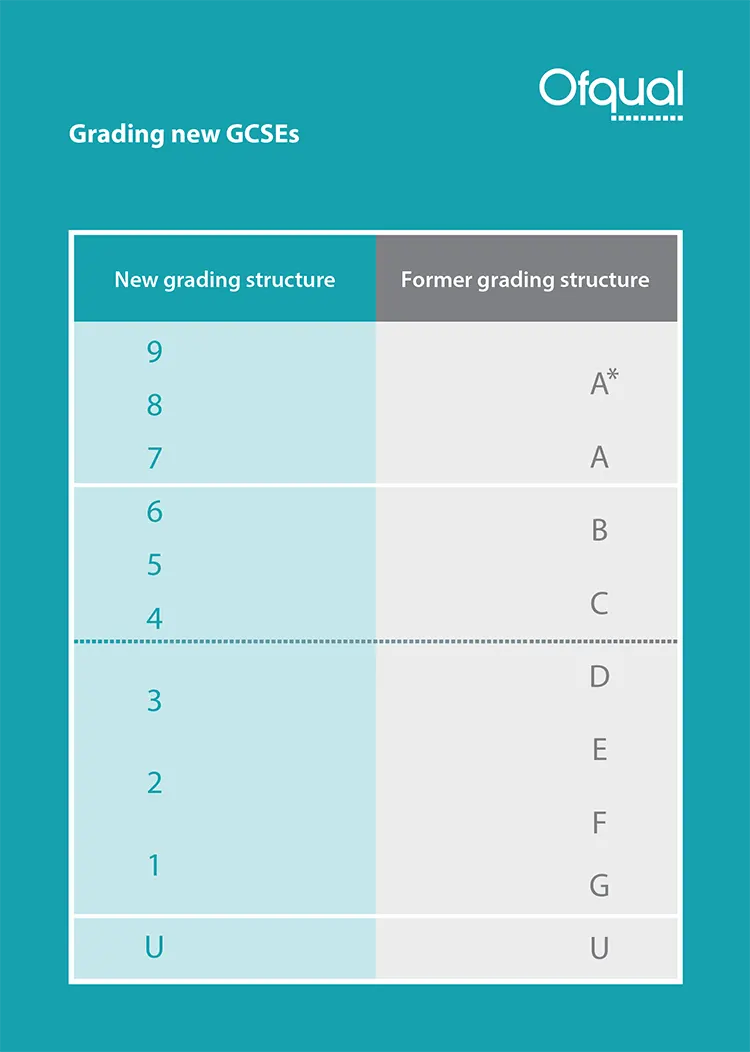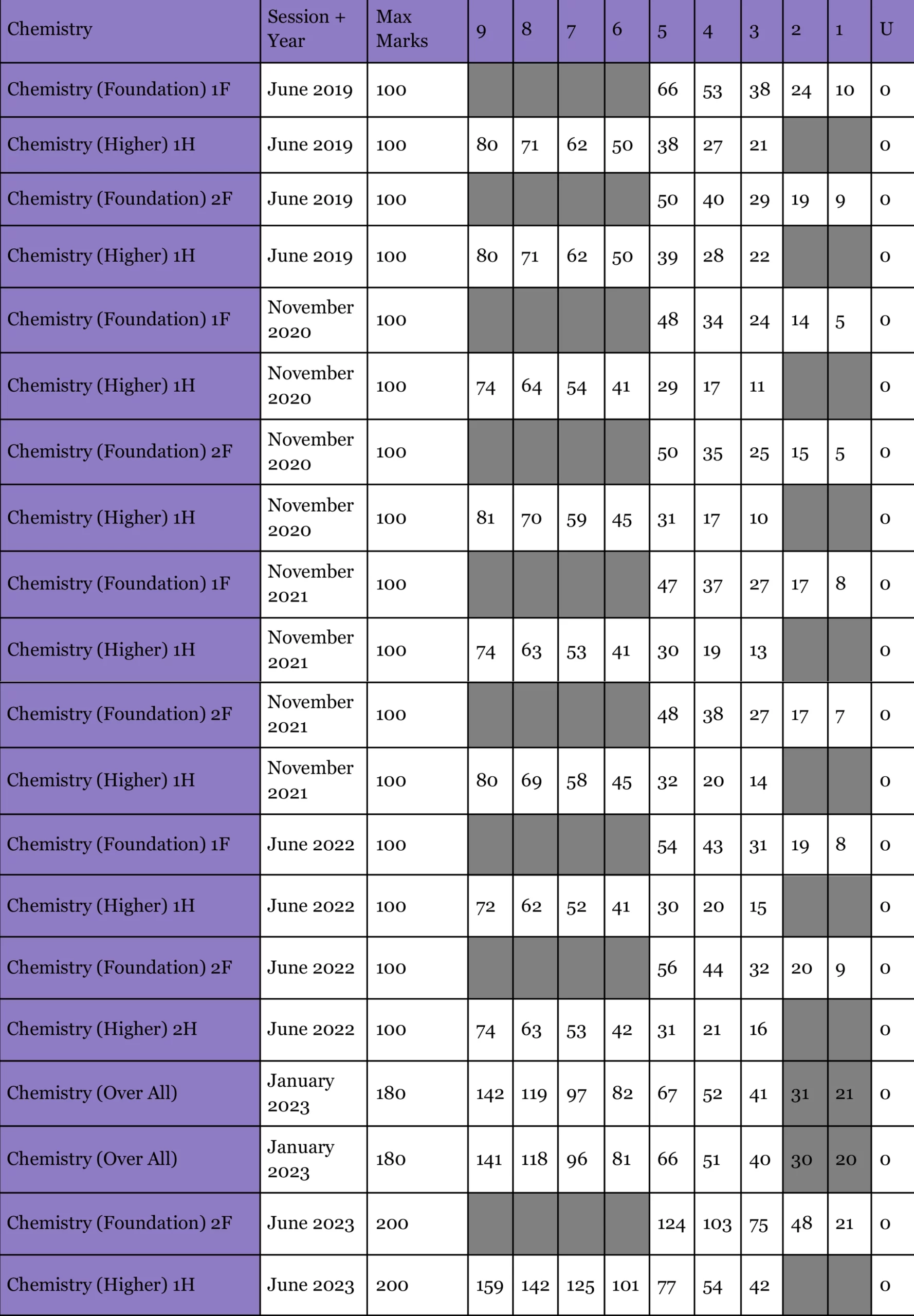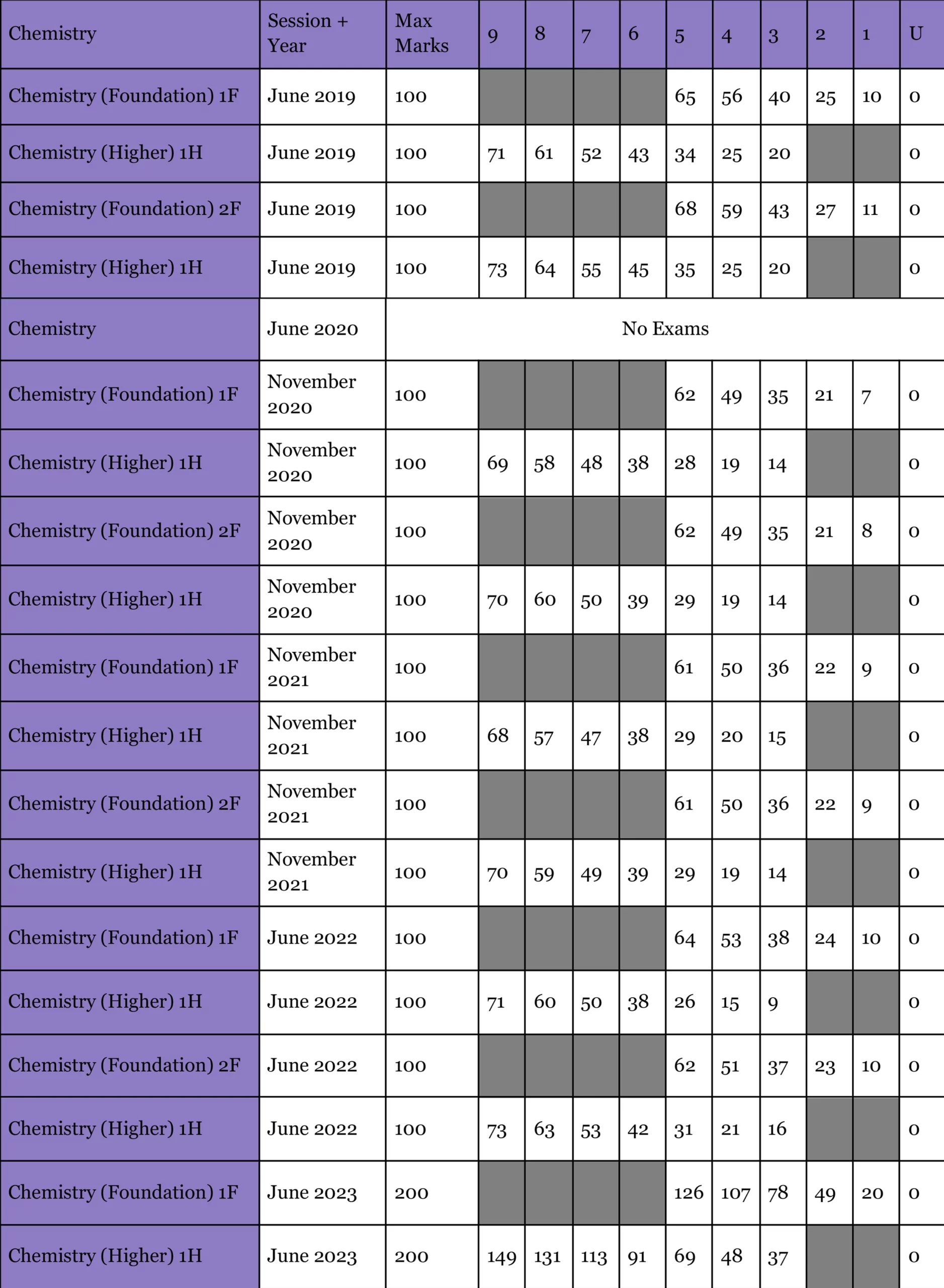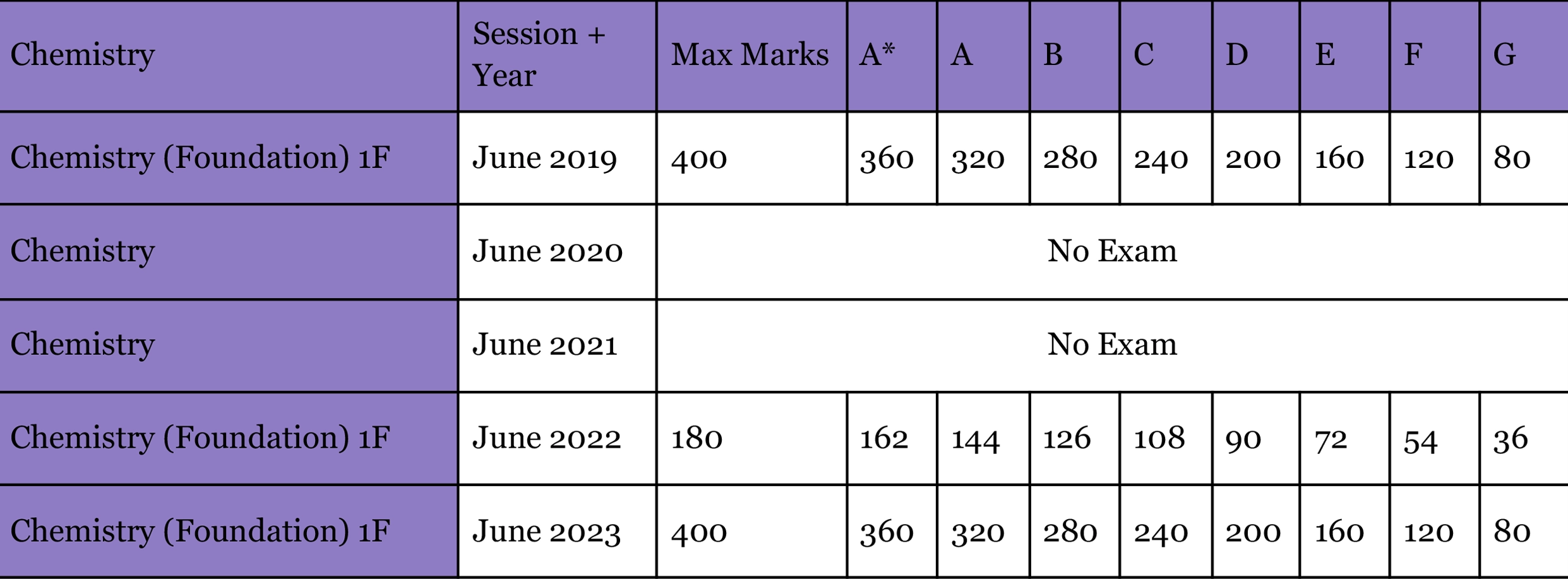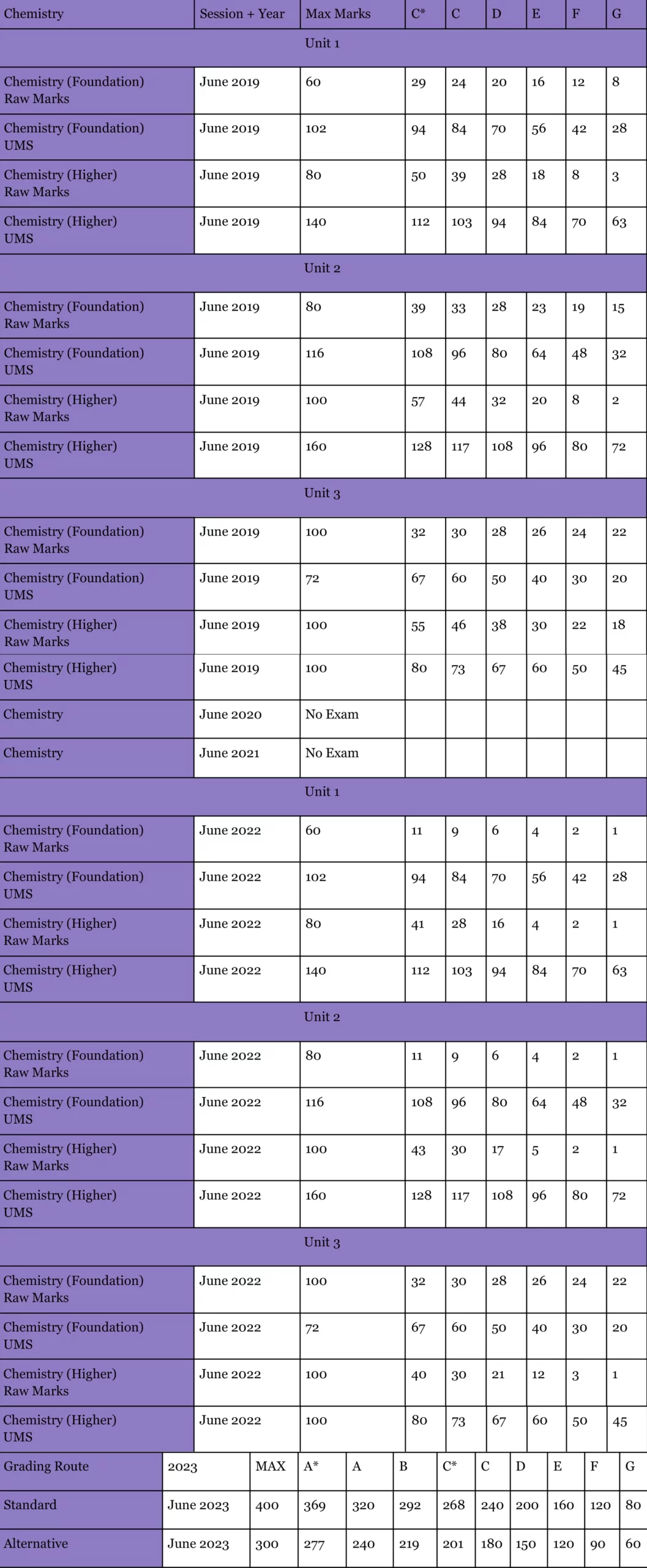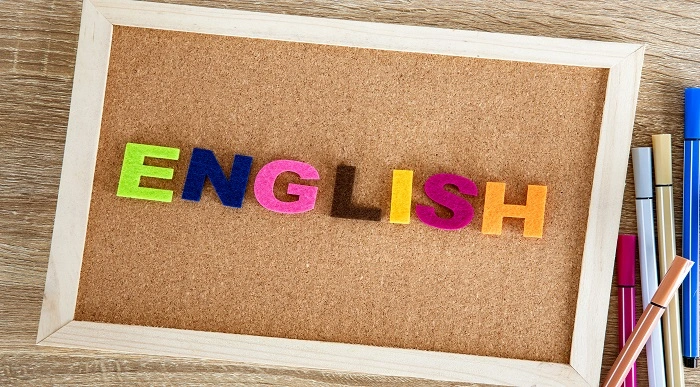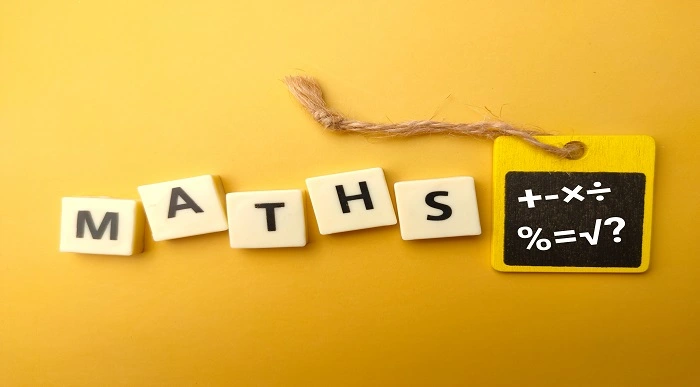GCSE
GCSE Chemistry Grade Boundaries 2019 to 2023 – All PDFs
If passing a chemistry examination is not your only goal and you would like to achieve the highest grade, then along with the proper understanding of the subject, you should know the criteria for the highest and the lowest marks or the GCSE Chemistry Grade Boundaries. Students must earn a standard pass in GCSE under the recently adopted grading system.
A student’s grade may suffer if these boundaries are even slightly altered. This article outlines the grade boundaries for the GCSE Chemistry higher paper 1 and 2 exams, so you can better understand what you need to do to achieve your desired grade.
The grade boundaries for the GCSE Chemistry higher paper 1 and 2 exams are typically released by the exam boards in August after all of the exams have been marked. Students can access this list on the very day.
Table of Content
Who Provides the Chemistry GCSE Grade Boundaries?
The examination boards provide the grade boundaries for GCSE Chemistry. They are set to ensure that the same standards are applied to all examinations nationwide.
New Grades Vs Old Grades
With 1 being the lowest grade and 9 being the highest, the new grading scale runs from 9 to 1. With grades 4-6 covering what were previously grades B and C and grades 7-9 covering previously grades A and A*, the new system is intended to allow for greater differentiation among the higher grades. About 20% of students who earn a grade 7 or higher will earn a grade 9, which is thought of as being higher than an A*.
GCSE Chemistry Grade Boundaries
Grade boundaries may change each year depending on the performance of candidates, so it is important to check with the examination boards for the latest information. Additionally, the examination boards also release information about the percentage of candidates who achieved each grade and the spread of marks within each grade.
This can provide an indication of the expected level of difficulty for the upcoming examinations. Furthermore, they can be used to compare the performance of students over time and between different educational institutions.
GCSE Chemistry Grade Boundaries (2019-2023) – Edexcel
GCSE Chemistry Grade Boundaries (2019-2023) – AQA
GCSE Chemistry Grade Boundaries (2019-2023) – OCR
GCSE Chemistry Grade Boundaries (2019-2023) – WJEC
GCSE Chemistry Grade Boundaries (2019-2023) – CCEA
You can also check out GCSE English Grade Boundaries and GCSE Maths Grade Boundaries for All Boards with a click.
FAQs
Is 7 a good GCSE grade?
The GCSE 2022 grade boundaries define a grade of 7 (lower A) as a good score. An examination score of between 70 and 82 percent is required for a student to get the 7th grade.
What is a pass in GCSE chemistry?
A 4 is essential for a basic pass, while a 5 is necessary for a strong pass. While 6, 7, 8 and 9 are also considered a good pass in GCSE chemistry.
What is the pass rate for chemistry GCSE?
The percentage of students receiving the highest marks increased to 54.6% in 2021, however, the pass rate decreased to 94.3%.
Conclusion
Exam boards also provide guidance on what knowledge and skills are needed to succeed in examinations, giving advice on how best to study for them. This guidance can help to focus the study efforts of students and ensure that they have an understanding of what will be required for them to achieve their desired grades.
What to Read Next:
- Essential Functional Skills Booklist for Study and Practice
- GCSE Grade Boundaries – All Boards 2022-2023
- Triangles ABC and CDE are Mathematically Similar?
- GCSE Exam Centres
- Does Functional Skills Count as a GCSE?
- GCSE Maths Formula Sheet – All Formula with Explanation
- IGCSE vs GCSE: What are the Differences & Which is Harder?


